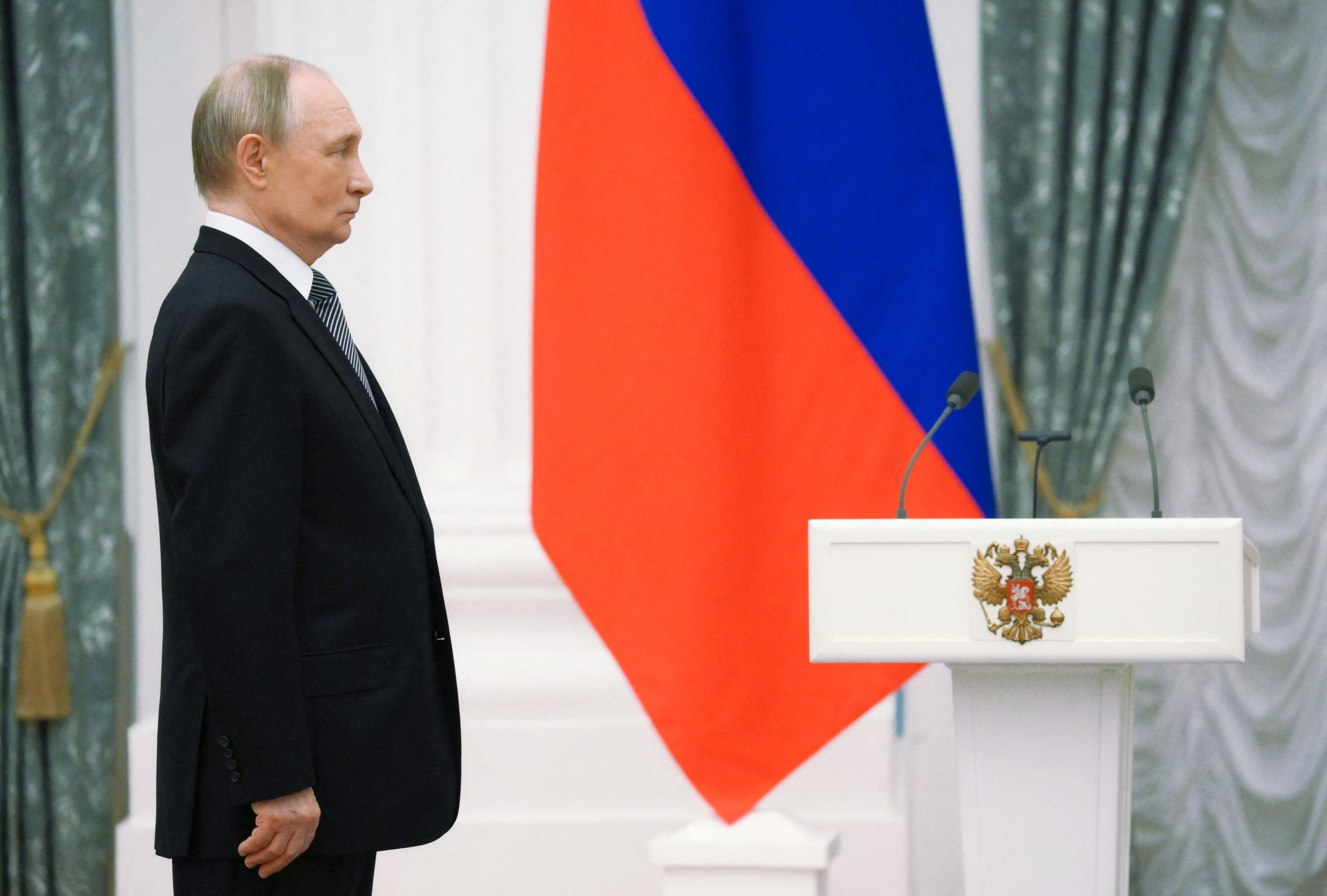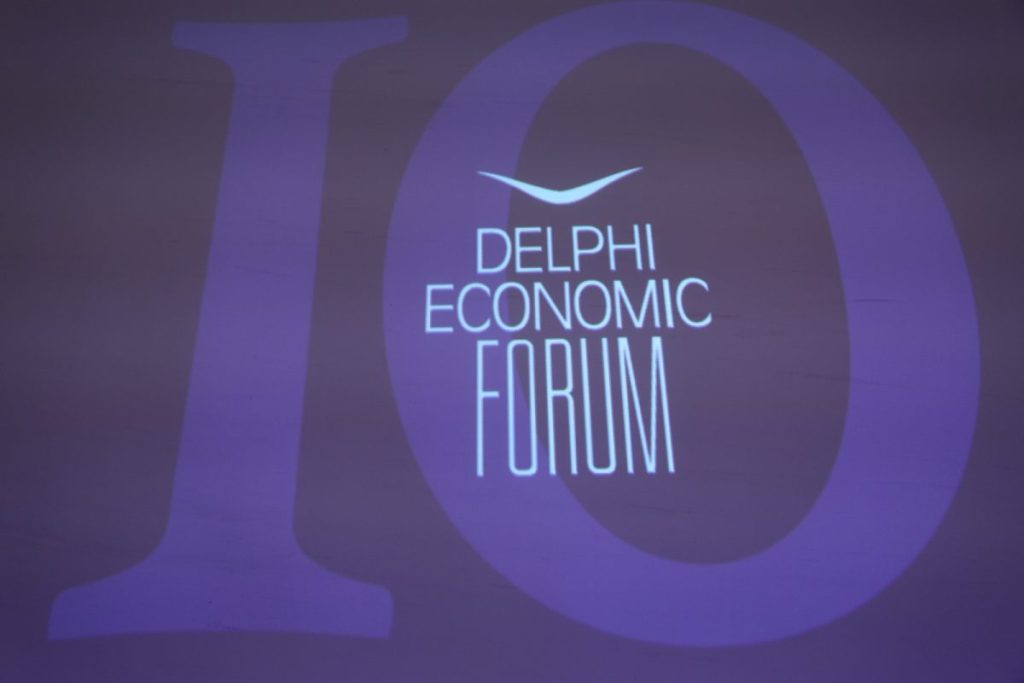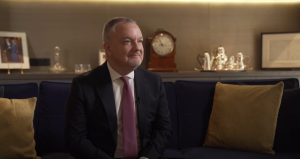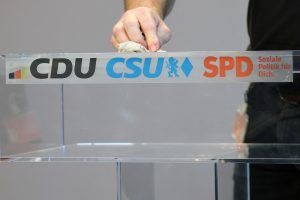26th March 2000 – a day that shaped Russian history for some, and for others, the day a man set Russia on a path towards many enemies. In a presidential election held on 26th March 2000, Vladimir Putin was elected President of Russia.Three individuals, each offering a different perspective, speak to TO BHMA International Edition about the 25 years that have shaped Vladimir Putin into the man he is today.
“His purpose has been for Russia to be a superpower again”
James Rodgers was reporting from Chechnya on the day Vladimir Putin was elected. He covered all the major events in Russia throughout the 1990s and early 2000s for Reuters Television and the BBC. Since 2012, he has taught journalism at City, University of London, where he lectures on the history of journalism and the reporting of armed conflict. His next book, The Return of Russia: From Yeltsin to Putin, the Story of a Vengeful Kremlin, is due to be published later this year.
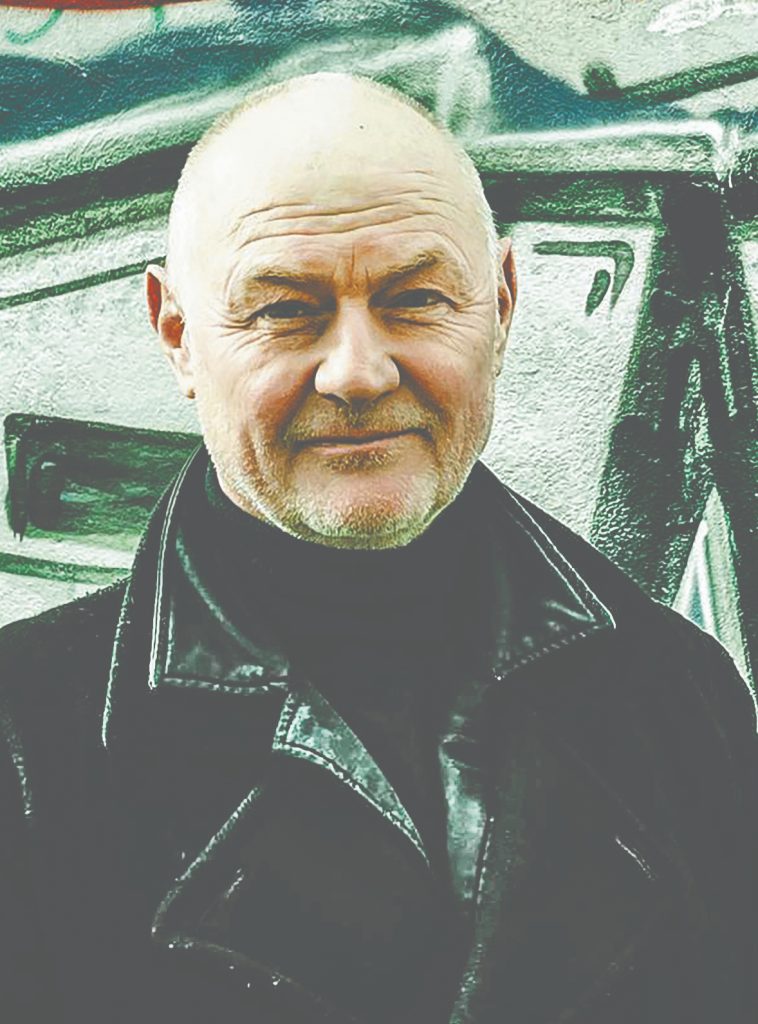
JAMES RODGERS,
ASSOCIATE PROFESSOR, ST GEORGE’S, UNIVERSITY OF LONDON / AUTHOR. copyright Kevin Cummins)
Looking back at Vladimir Putin’s first election in March 2000, did you anticipate that Putin would remain in power for so long?
Certainly not. I don’t think anybody did. If we think back to that time, I think Putin was largely unknown. He’d been prime minister for a few months. He’d come from a background in the security services, but he hadn’t even been in Moscow that long.
He hadn’t even been close to the real centres of Russian power. So a virtual political unknown who rose to prominence during the fall of 1999 was the only sort of, the constitution made him acting President and he won the election in March. But nobody foresaw then.
Putin really started by restoring stability and a degree of prosperity at home. I think it’s difficult to overstate the humiliation that a lot of people felt. You know, if you go from living in one of the world’s superpowers to a place that’s reliant on your former rivals from the West on humanitarian aid in the space of a few years, hard for people to cope with that. And Putin understood that. Putin’s genius early in his early years was to understand what people wanted and give it to them.
How was Putin perceived by the Russian public and the international community in those early days?
I think he was perceived by the international community as a necessary corrective to what had gone before. Somebody who was logical, someone who was organised, someone, frankly, who was sober as well. He had a very business-like way of dealing with things. And as to the way that he was looked at in Russia, I think one of Putin’s great skills at this time was to be able to talk to lots of different people in different ways. He could dress up in a suit and he could talk to other international politicians. He could dress up in army uniform and make threats in language that was more suited maybe to soldiers shouting at each other than it was to international diplomacy. A lot of people had a lot of confidence in him at home. And I think international leaders saw in him somebody who was organised and with whom they could work.
How did you see the transition from Yeltsin to Putin?
There were very different kinds of leaders. But there was no suggestion then in those early days that we would see a time again when Russia was in confrontation with the West as it was during the Cold War. Clearly, personally, and therefore as leaders, they had very different styles. Yeltsin making jokes and dancing on the campaign trail when he was running for re-election to show because obviously, he had health problems. In 1996, when he was being re-elected, he went and danced in public to music at campaign rallies. Putin was much more reserved, much more cautious. I think really a reflection of his background in the KGB and the Russian security services. He was clearly calculating, trying to understand his surroundings, taking everything in and then processing that information and trying to calculate rationally how to respond.
How has Russia’s media landscape changed throughout these 25 years of Putin’s leadership?
I think now… there’s absolutely no press freedom to speak of in Russia at all now. I continue to have the greatest admiration for my Russian colleagues who continue to work in very difficult circumstances, most of them working in exile. (…) After Putin had been in power for a little while, Russian journalists are very smart, very sensitive to understanding the way that they have to interact with authority. And I think a lot of them saw when this KGB man came to be President that things were going to change. So while there wasn’t sort of overt censorship to begin with, there was a change of emphasis and there was self-censorship. I think there was an understanding that the rules of the game had very definitely changed. Later on, of course, we see journalists driven into exile. We saw the killing of Anna Politkovskaya, who was very critical of the conduct, particularly of the war in Chechnya. And the people who pulled the trigger were brought to court, but it was never clear who ordered that murder. I will note, Anna Politkovskaya was killed on Vladimir Putin’s birthday. So it’s changed very much.
Looking back to these 25 years, do you think that the West underestimated Putin in its early days?
I think Putin was still forming his own political ideas at that stage. If you look back through his career, he’s very much sort of learning as you go along -you asked me if I thought he would stay in power for 25 years, and I didn’t. I’m not sure that he thought he would stay in power for 25 years then.
How do you assess these ceasefire agreement discussions that are happening today?
I don’t see it succeeding, I’m afraid. I don’t think that the Russian side has made it very clear the conditions that they’re putting down and they can’t possibly be acceptable to Ukraine, namely the fact that these four regions of Ukraine, which Russia claims to have annexed, that they are now must be, in effect, internationally recognised as part of Russia. That is something clearly that Ukraine, the European Union, cannot accept.
What do you think will be Putin’s long term legacy, both for Russia and globally?
I think it’s obviously going to depend upon, depend to a massive extent on how this war ends. The beginning of his career was founded by the war in Chechnya and the end of his political career will be determined, defined by the way this war in Ukraine goes.
Looking ahead, do you see a post-Putin Russia emerging anytime soon and if so, what might it look like?
I think now a post-Putin Russia would look pretty much like now. The big difference is there is no effective political opposition in Russia, real public opinion is hard to determine, but there’s no question that, the war does enjoy quite a wide degree of public support.
As for summing up, in a word or two, what Putin’s sort of purpose has been, his purpose has been to reverse the humiliation that Russia felt after the end of the Cold War. His purpose has been for Russia to be a superpower again. I think Putin looks back at the Cold War, a time when, in effect, Washington and Moscow got together and decided how Europe was going to be, they divided up Europe between them into two security blocs. And I think Putin feels that he’s got back to where he wants to be, he’s got back to the superpower status being taken seriously by the President of the United States.
So I think, the words that would sum him up, power and strength is what he sees and an increasingly stifling lack of freedom at home and an increasing aggression abroad.
“One thing I’ve learned about Russia is you can’t predict what’s going to happen”
Wendy Sloane is an Associate Professor, Principal Lecturer, and Journalism Course Leader at London Metropolitan University. She is the author of Kremlin Media Wars: Censorship and Control Since the Invasion of Ukraine.
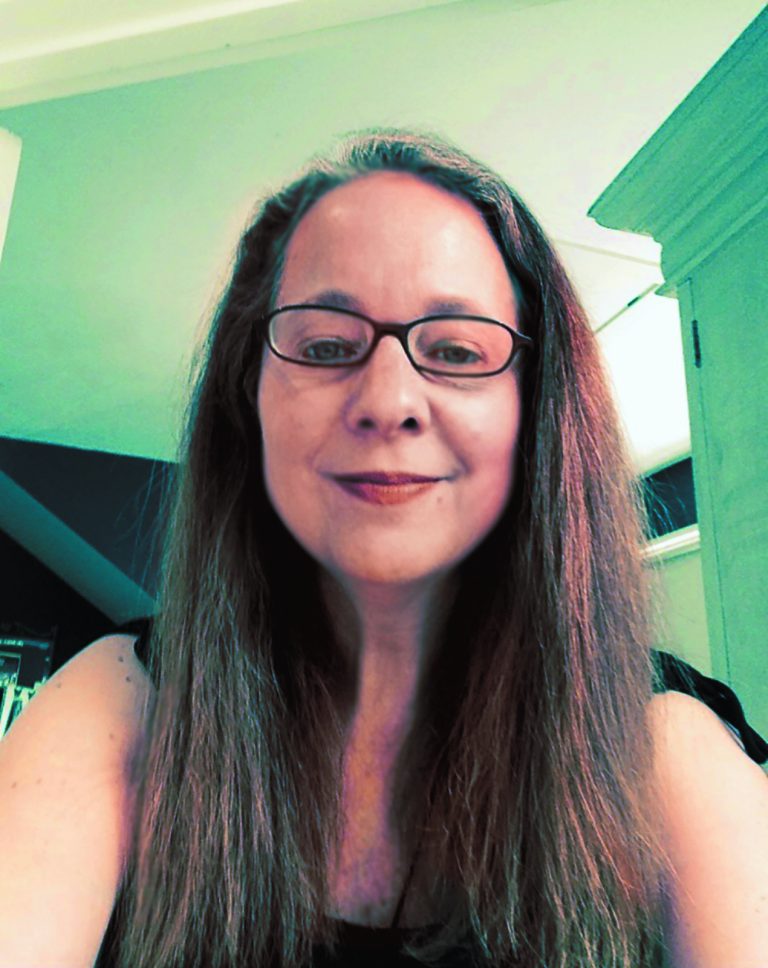
WENDY SLOANE, ASSOCIATE PROFESSOR, LONDON METROPOLITAN UNIVERSITY
Sloane began her career in 1988 as a reporter-researcher for Time Magazine, working in New York and later Vienna. She then secured a fellowship to write for Moscow News, a pro-glasnost Soviet newspaper, becoming the first American member of the Union of Soviet Journalists.
She spent seven years in the former Soviet Union, covering the coup that led to the Soviet collapse for The Associated Press before writing for Western newspapers. As a foreign correspondent for The Daily Telegraph and the Christian Science Monitor, she reported on the war in Chechnya, civil unrest in Georgia, and the wider post-Soviet turmoil, travelling extensively across the region.
In 1995, Sloane moved to London, working on The Daily Telegraph’s foreign desk and contributing to several magazines before transitioning into academia in 2010.
You were in Moscow covering the collapse of the Soviet Union. What can you tell us about this period?
At the time I was working for Associated Press. So, the largest news agency in the world. And I remember going to work one day and we were told that Mikhail Gorbachev was ill. That was the official party line and then they started playing all sorts of music like Swan Lake on the official channels. We had a feeling that something was up. We then realised that it was a coup. It was it was an amazing experience to be literally covering such a big historical event, to be covering history.
When you look back at that time, could you have imagined that Russia would eventually be ruled by one man for 25 years?
Yes, because in the past, Russia was ruled by one man. You had Stalin who ruled Russia or the Soviet Union for a long time. I think Russians are used to having, as they call it, a very strong leader.
And there were lots of people who were nostalgic about the days of Stalin. Putin has played into the hands of the people who wanted to go back to Stalinist days.
So, we were very excited when Gorbachev came to power and moderately excited when Yeltsin came to power. But then I didn’t think that it would become like it has become with Putin, but it’s not that surprising looking at the history of Russia in this century.
When you started reporting on the developments on the Vladimir Putin regime, can you remember what were the most interesting things of his policy?
Boris Yeltsin was in office until 1999, and I left the country before then. So, I have been back, since then, but I wasn’t working as a day-to-day journalist when Putin was in power. I do remember having a chat with Masha Gessen, who now writes for The New Yorker and other publications.
She was the editor of a magazine that was kind of like National Geographic when Putin was in power, and she told me that she received a phone call asking her to come and meet with him. And her first reaction was that it wasn’t a real phone call, but it was. So, she went to the Kremlin. She had to wait for many hours, which I think is a power play, just keeping people waiting for you. And she wasn’t allowed to leave. Then she was told by Putin that she was fired from her editorial job. Can you imagine, Keir Starmer calling up somebody at The Times and saying you’re fired? That just wouldn’t happen, would it?
Did they mention a reason about that?
He didn’t like the reporting that she was doing because I guess it cut too close to the bone for him. And he just removed her from the situation.
She ended up leaving Russia. That was the beginning of the end of her sojourn in Russia.
What do you think were the key moments that allowed Putin to consolidate his grip on power so effectively?
Russia has censorship, although they say that they have officially outlawed it. Censorship exists, and these days the media is under Kremlin control, although for a while that changed under leaders such as Gorbachev and Yeltsin. Under Gorbachev, the media was shaped by both the Kremlin and commercial influences, so commerce in some ways was setting the stage for the future.
But Putin just cut all that down completely. That was the beginning of the end. And since the invasion of Ukraine, things have intensified with legislation such as the “law on fakes”, when you can’t even call a war a war, or say or write anything that will bring discredit to the Russian military.
But even before that, he was implementing laws that were threatening the independence of the media. He made it illegal for people to report on anything that put LGBTQIA+ people in a positive light, for example, which is pure and simple censorship, even though they don’t say it’s censorship.
He started slowly encroaching on human liberties until we got where we are today.
But I think once you have control of the media, you have control of almost anything, don’t you?
Now a lot of people get their information from abroad through the use of VPNs. A lot of the media has left and is now what we call the media in exile.
Some left a long time ago, like Meduza, which set up in Latvia in 2014. But other places like the Moscow Times, which was declared a foreign agent and later an undesirable organisation, was forced to relocate and now is based in the Netherlands and Armenia.
But they still broadcast both in Russian and English, or they put out their newspapers in both Russian and English to audiences who can access it from within Russia.
But you can get in trouble for even doing that.
And now, Roskomnadzor, the government watchdog that cracks down on the media, is always blocking different sites, so that normal Russians don’t have access even with their VPNs.
They can’t access certain things. So, it’s difficult. Social media still gives people some glimpse of what’s going on outside Russia. And encrypted social media, like Telegram, is quite popular. Ukrainians at one stage were using Telegram to entice Russian soldiers to give up, which some of them did. But I think the tentacles of what’s going on within Russia reach far and wide.
So even if you leave Russia, you can still be worried about what will happen if you publish anti-Putin things. You worry about what will happen to your friends and family within Russia, as they can be threatened. So it’s not as easy to just break away. And a lot of people practice self-censorship to survive. I don’t think we’re in a position to really condemn that unless we’re in that position ourselves.
After 25 years, how do you think history will judge Putin’s rule?
We’re not sure exactly how he will be judged until his regime is over. It’s difficult to predict how it will end. Is there any real prospect of political change in Russia while Putin is still in power? I would say no, but I could very easily be wrong, but I would say no, as long as he’s in power, no. One thing I’ve learned about Russia is you can’t really predict what’s going to happen.
Do you think Putin miscalculated when he launched the invasion in Ukraine, or was it always part of a broader strategy?
I would hope that he miscalculated. I mean, I would hope that he thought that he would go in and out of Ukraine quickly, be able to snatch the territory that he wanted to take, and that the invasion would have been over almost as quickly as it started. I do rather doubt that he thought that it would be such a protracted war. And I think his propaganda machine within the country has helped him maintain his stance.
If you could ask Vladimir Putin one question and get an honest answer, what would it be?
Are you really doing this for the benefit of the Russian people, or are you doing it just to make yourself personally more powerful?
If you had to choose just one adjective to characterise Putin’s regime and his 25-year presidency, what would it be and why?
It would be oppressive. It is an oppressive regime that’s becoming even more oppressive. And my heart goes out to all the Ukrainians who’ve been killed and all the young Russian men who have been forced to take part in the war and who’ve been killed and the mothers, the wives, the girlfriends.
Who could be Vladimir Putin’s successor?
This list of old men who are his acolytes and have served in his government is long, with names like Mishustin, Sobyanin and Medvedev coming to mind. But he could surprise us all by doing what people say Trump wants to do, which is have one of his children become the successor, keeping it in the family. That seems to be what dictators all over the world like to do. Putin has two daughters who could be his successors if he trains them right.
Do you believe that his daughter would be probably the next Russia’s President?
I doubt it but it’s fun to speculate. Katerina Vladimirovna Tikhonova, who’s his second daughter, is a former acrobatic dancer, so that would be quite interesting. Or there could be somebody that’s going to step out of the shadows.
“I was communicated I was on a hit-list”
Ksenia Maksimova is the founder and director of the Russian Democratic Society in London, an organisation that has raised tens of thousands of pounds to support humanitarian aid efforts in Ukraine. A vocal critic of Vladimir Putin and a staunch advocate for Ukraine, she has been actively campaigning against the Russian regime since the full-scale invasion began. Before dedicating herself to activism, Ksenia enjoyed a successful career as an internationally recognised model and remains involved in the fashion industry today.
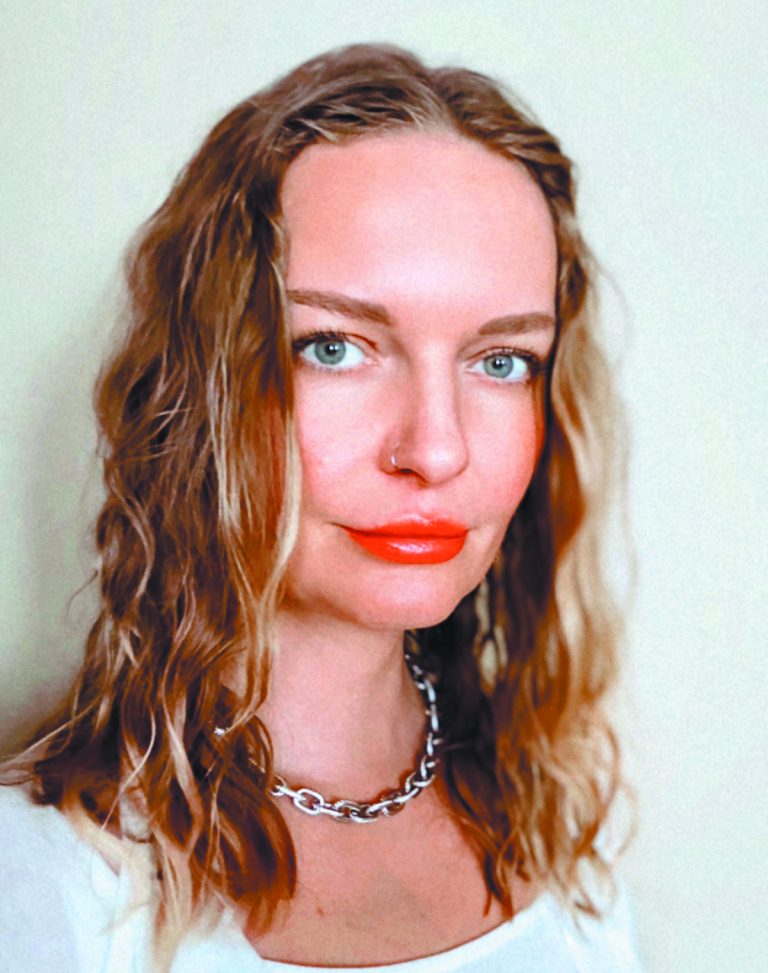
KSENIA MAXIMOVA, Founder, Director of the Russian Democratic Society
As someone that you were born and raised in Russia, how do you think Russian has changed under Putin’s rule and policies?
It’s been quite miserable. I remember before I kind of moved to the West in the beginning of 2000s, there was so much hope around and the money was finally there and a lot of Western corporations were moving in and there was like quite an economic boom, a cultural boom. There’s just so much happening and all of that was completely run into the ground.
When did you leave Russia?
I left, as I moved to UK with my father. I was a teenager and then I would go back all the time, and my kids speak Russian, so I would take my kids there all the time. But last time I was there was seven years ago and then because of COVID mostly, I wasn’t going back. And then from 2021, I kind of realised that I probably should not. And then from 2022, it was like obvious that I can’t really go back.
What was it like for you when you started realising that Russia’s path under Putin was heading into a potentially wrong direction?
I think it’s like if you boil a frog on slow fire, you don’t really realise. And the smartest people started ringing alarm bells back in 2005. I was quite oblivious to it then. I was a kid as well. But in 2011, I flew to the first protest in Moscow, and I went to others in 2012. But it still didn’t seem too bad. And back then, in 2012, 100,000 people came out in Moscow, and it seemed like the government would hear us and see how upset people are and change course. But instead, they just kept tightening the screws and tightening the screws. And obviously, then the opposition as well wasn’t capable of uniting, even then, same now. But I think everyone kept thinking, majority of people that somehow, it’s not going to get that bad. And that’s why, back in 2016, or when Trump got elected the first time, I was telling my American friends, you just think it’s not a big deal, we’ll sort it out somehow. But these little steps and steps and steps to dictatorships, it’s the same scenario every time.
You have expressed fear for your safety. How does it feel to live in exile, constantly looking, you know, over your own shoulder to see what is happening?
I wouldn’t say I do, because you just kind of get on with it. I think you think about it in the very beginning, and then you just have to either accept it or it scares you so much that you quit. And I guess, I just didn’t get that. I honestly, I don’t even care anymore. If something happens, something happens.
How do you maintain communication with some relatives or friends who are still in Russia?
I do have family there, and I’m not very comfortable about it, honestly. And there are some issues and reasons why I can’t really change that situation right now. I don’t think it’s good for anyone to stay friends with me in Russia right now. So, that’s probably my bigger concern than my own safety, my family.
You shared that you have briefed your children on what nerve agent poisoning looks like. Why did you do it?
So, in 2023, I was communicated that I was on a hit list.
What does a hit list mean?
There was a long list of people that were threatened with specifically nerve agent poisoning. And I spoke to my Ukrainian colleagues at that point, because they were the most expert people, I had next to me to advise me on something like this. And they said that likelihood is that they are, the Russians are, they created an alternative to Ukrainian CPSU, which is like a division that deals in scare tactics. So, they’re not likely to actually pursue it. Like, they’re just trying to scare you. So, I decided that I’m going to take it that way, that it’s just threats. And, I mean, it’s 2025, I’m still alive, so fingers crossed. But I did tell my kids, just in case, anyway, if something, they just need to know what the reaction can be like. Because, unfortunately, the biggest problem is that, as we’ve seen with Skripal’s case, other people around you can get hurt, not even you necessarily.
Is this hit list created by the government, by secret agents?
I mean, I suppose it’s this, the FSB or God knows, or whatever, what is that group, the ones that go abroad? Yes. But the thing is, UK’s been very on it with, it’s more if you go to Eastern Europe, that we need to be careful because it’s a lot easier for them to get in there.
Do you ever fear, Xenia, for your own safety?
Like I said before, it’s not something I really think about anymore. Should I be concerned? Yes. Am I constantly worried? No.
Can you tell us a little bit more about the work that the Russian Democratic Society is doing here in the UK?
Now, our biggest focus is creating a kind of representative body for the democratic Russians so we can do consistent work in educating and informing the public and the government here about the threat of the Russian government because we see how naive they can be about it. We need to support this democratic community like we do in UK, we organise events and talks and bring people together and kind of also invite local public. So, they also see that side of kind of contemporary Russian culture and understand that it exists.
Have you ever felt like criticism by others around your work?
Not very much. I was in Kyiv two weeks ago. And people were grateful that Russians like me exist. And they were very surprised as well. When I was in Ukraine, a family from Irpin took me to Irpin, in Bucha where a lot of people were massacred and they were taking me around, showing me things and I I was like how you can even talk to me especially so calmly but um they were grateful and we’re still in touch. I think it’s not all as black and white as people tend to think.
